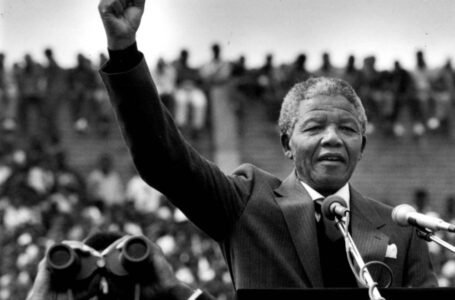Scented Tomorrows: Shaping the Future of Perfumery
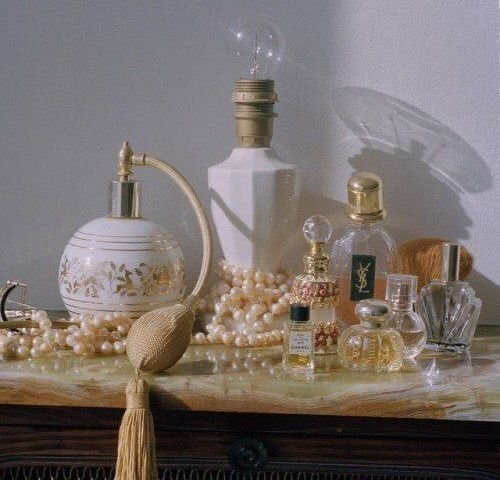
A captivating blend of artistry and innovation is propelling the perfume industry into a new era. Technological advancements have become the driving force behind transformative changes, reshaping every facet of perfume-making. Amidst these exciting developments lie a multitude of challenges and opportunities that fragrance companies must navigate to thrive in an ever-changing market. Let’s embark on a journey to explore the intersection of technology, personalization, and market dynamics shaping the future of perfumery.
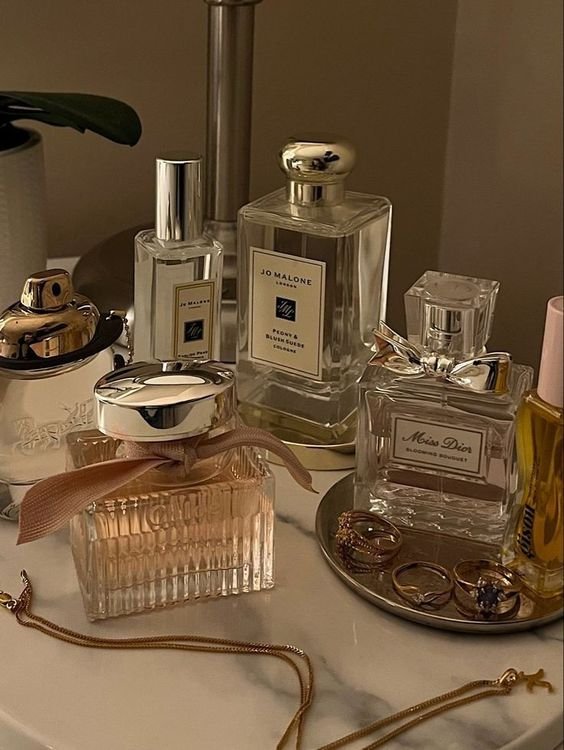
In the world of fragrance creation, precision and sustainability have become watchwords, driving innovation in every aspect of the process. Technological advancements have ushered in a new era where algorithms dance in harmony, crafting olfactory symphonies with unparalleled precision. From ingredient blending to sustainable practices, data-driven personalization to immersive customer experiences, the fragrance industry is embracing technology like never before.
Picture a synchronized dance where algorithms choreograph the perfect blend of ingredients, ensuring every drop of fragrance is a masterpiece. Automation has revolutionized the blending process, enhancing quality and consistency to unprecedented levels. Through AI-driven efficiency, fragrance creators can now achieve faster production without compromising on coherence or quality. From ensuring precise ingredient blending to maintaining rigorous quality standards, technology has become the cornerstone of fragrance creation, delivering unforgettable olfactory experiences.
In response to growing environmental concerns, technology has emerged as a beacon of sustainability in the fragrance industry. From exploring eco-friendly ingredients to revolutionizing extraction methods, the pursuit of sustainability has become deeply ingrained in fragrance creation. By leveraging technology, brands are not only reducing their environmental footprint but also offering consumers a guilt-free olfactory indulgence. Whether it’s through durable formulations or green certifications, technology is driving the industry towards a more sustainable future, one fragrance at a time.

In the age of personalization, data serves as the guiding light in crafting bespoke fragrances. Through the power of artificial intelligence, consumer preferences are analyzed and translated into unique olfactory experiences. Brands are harnessing data to fine-tune their offerings, creating perfumes that resonate with individual tastes and preferences. This digital revolution in perfumery is not just about selling fragrances; it’s about forging deeper connections with consumers through tailor-made olfactory journeys.
Augmented reality has redefined the customer experience, offering virtual trials of fragrances that transcend traditional boundaries. Imagine stepping into a digital realm where you can explore a myriad of scents before making a decision. Technology has transformed fragrance shopping into an immersive sensory journey, where consumers can engage with perfumes in ways previously unimaginable. By embracing technologies like augmented reality, brands are fostering deeper connections with consumers, elevating the shopping experience to new heights.
As technology continues to evolve, so too does the art of fragrance creation. From predictive analytics to robotic compounding, the possibilities are endless. Analytical software allows perfumers to visualize the performance of fragrances before they’re even compounded, while robotics streamline the sampling process, reducing time and increasing efficiency. Biotechnology offers a sustainable alternative to traditional ingredients, while advances in delivery systems promise new olfactory experiences. Artificial intelligence presents opportunities for data-driven innovation, offering insights into consumer preferences and market trends.

In this ever-changing landscape, technology is not a replacement for human creativity but rather a catalyst for innovation. Perfumery remains an art form, guided by the skill and expertise of master perfumers. Yet, technology has become an indispensable tool, empowering creators to push the boundaries of fragrance creation like never before. As we embark on this technological olfactory odyssey, one thing is clear: the future of fragrance creation is limited only by our imagination.
In the realm of fragrance, the pursuit of a signature scent has evolved into a deeply personal journey. Today, more than ever, individuals seek to express their identity through olfactory experiences that resonate with their unique preferences and narratives. This shift towards personalized and bespoke fragrances has revolutionized the industry, offering consumers a heightened sense of individuality and connection with their scents. Let’s delve into the transformative journey of crafting a personalized perfume and explore the technological innovations driving this olfactory revolution.

Creating a personalized perfume is an intricate process, guided by a series of stages meticulously designed to capture the essence of each individual. Many perfume houses offer a comprehensive fragrance design service that begins with understanding the clients’ needs and brand values. From there, they embark on a collaborative journey, translating the clients’ vision into a tailor-made perfume collection, from fragrance composition to product design and packaging.
The first step in this journey is to understand the client’s objectives and preferences. Through detailed consultations and briefings, perfumers delve into their brand values, aspirations, and desired olfactory profiles. This collaborative process ensures that every aspect of the perfume aligns with the client’s vision, resulting in a truly bespoke creation.
With the client’s input as their guide, perfumers embark on the creative process of crafting the olfactory narrative. Drawing inspiration from storytelling, they define the perfume concept and select the notes that will compose its unique melody. This stage is a delicate dance of creativity and collaboration, where multiple proposals are developed and refined until the perfect fragrance emerges.

Behind the artistry of perfume creation lies a foundation of scientific precision. The perfume houses’ technical team carefully selects raw materials, combining essential oils and synthetic molecules to achieve the desired fragrance. Extensive testing and evaluation ensure that the formula meets the client’s specifications, from aroma intensity to longevity.
In an era of responsible consumption, sustainability is at the forefront of approach to perfume creation. Multiple perfume houses and brands offer options for products made with natural and organic ingredients, holding certifications that reflect their commitment to ethical sourcing and production practices. From ingredient selection to manufacturing processes, sustainability is woven into every aspect of operation.
Advancements in technology have revolutionized the personalization process, offering new avenues for creativity and innovation. AI-driven algorithms analyze consumer data to generate customized scent profiles, while 3D printing enables consumers to design their own fragrances from the comfort of their homes. These technological innovations empower individuals to take control of their olfactory destiny, ushering in a new era of personalized perfumery.

Looking ahead, the future of personalized perfumery is bright with possibilities. As technology continues to advance, one can expect even greater levels of customization and innovation. From AI-driven scent algorithms to immersive virtual experiences, the opportunities for creating truly unique fragrances are limitless. As consumers increasingly seek products that reflect their individuality, personalized perfumery will continue to thrive as a beacon of self-expression and creativity.
The shift towards personalized and bespoke fragrances represents a profound evolution in the fragrance industry. By embracing technology, sustainability, and the artistry of perfumery, we empower individuals to craft scents that are as unique as they are. As we continue to explore new frontiers in olfactory innovation, the journey towards personalization promises to be an exhilarating and transformative experience for fragrance enthusiasts around the world.

The fragrance industry, like any other sector, is not immune to change. With evolving consumer preferences, advancements in technology, and increasing environmental consciousness, fragrance companies are faced with a multitude of challenges and opportunities. Understanding these dynamics is essential for navigating the complexities of the market and positioning oneself for success. Let’s delve deeper into each of these factors and explore how they shape the landscape of the fragrance industry.
In today’s fast-paced world, consumer preferences are constantly evolving, driven by factors such as lifestyle changes, cultural influences, and emerging trends. In the fragrance industry, staying attuned to these shifting preferences is crucial for maintaining relevance and competitiveness.
Consumers are increasingly gravitating towards products that align with their values and lifestyle choices. This includes a growing demand for sustainable, eco-friendly fragrances made with natural ingredients and ethical sourcing practices. Brands that fail to adapt to these changing preferences risk losing market share to competitors who prioritize sustainability and transparency.

Moreover, personalization has emerged as a key trend in the fragrance market, with consumers seeking unique scent experiences that resonate with their individuality. From customizable perfume blends to personalized packaging and branding, brands that offer tailored solutions are better positioned to capture the attention and loyalty of consumers in an increasingly crowded marketplace.
Environmental sustainability has become a pressing issue across industries, including fragrance. Consumers are becoming more conscious of the environmental impact of their purchasing decisions and are demanding greater transparency and accountability from brands.
Fragrance companies are under increasing pressure to adopt sustainable practices throughout their supply chain, from sourcing raw materials to manufacturing processes and packaging. This includes reducing carbon emissions, minimizing waste, and sourcing ingredients responsibly to preserve biodiversity and support local communities.
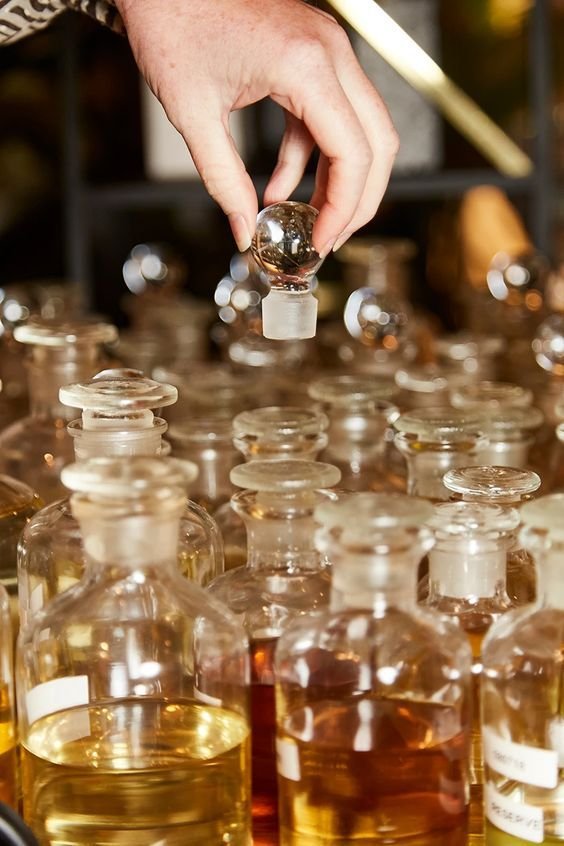
Brands that embrace sustainability as a core value not only meet the expectations of eco-conscious consumers but also differentiate themselves in the market, gaining a competitive edge and enhancing their brand reputation.
The fragrance market is highly competitive, with numerous brands vying for consumers’ attention and spending. As the market becomes increasingly saturated, brands must find ways to differentiate themselves and stand out from the crowd.
Innovation is key to staying ahead of the competition. Whether through product development, marketing strategies, or customer experience initiatives, brands that innovate are better positioned to capture market share and drive growth.

Moreover, building strong brand equity and cultivating a loyal customer base can help brands weather market fluctuations and maintain their competitive edge. By delivering exceptional products and experiences that resonate with consumers, brands can foster long-term relationships and sustain success in a competitive marketplace.
Navigating regulatory compliance is a significant challenge for fragrance companies, particularly in light of evolving regulations and standards governing ingredient safety, labeling requirements, and product testing.
With regulations varying from region to region, compliance can be complex and resource-intensive. Fragrance companies must stay abreast of regulatory developments and ensure that their products meet all applicable requirements to avoid costly penalties and reputational damage.
Investing in robust regulatory compliance processes and staying proactive in addressing emerging regulatory issues can help fragrance companies mitigate risks and maintain compliance with industry standards.
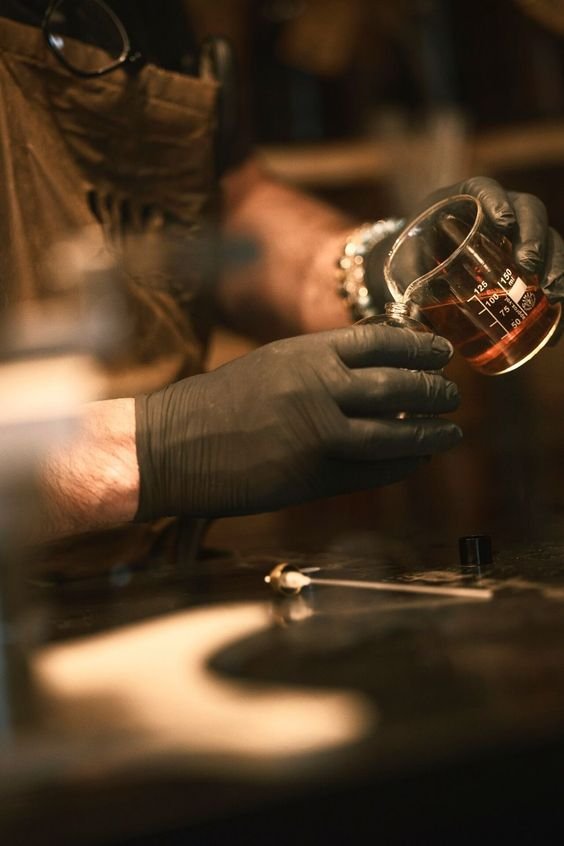
The fragrance industry relies on a complex global supply chain to source raw materials, manufacture products, and distribute them to consumers. Disruptions to the supply chain, whether due to natural disasters, geopolitical tensions, or other unforeseen events, can have far-reaching consequences for fragrance companies.
Supply chain disruptions can impact production timelines, product availability, and overall business operations, leading to delays, shortages, and increased costs. Fragrance companies must have robust contingency plans in place to mitigate the impact of supply chain disruptions and ensure business continuity.
This may involve diversifying suppliers, implementing risk management strategies, and investing in technologies that enhance supply chain visibility and resilience. By proactively addressing supply chain risks, fragrance companies can better withstand disruptions and maintain a competitive advantage in the market.

The fragrance industry is facing a myriad of challenges and opportunities in an ever-evolving market landscape. By understanding and addressing these factors, fragrance companies can navigate the complexities of the market and position themselves for success in the future. Whether through innovation, sustainability, regulatory compliance, or supply chain management, embracing change and adapting to shifting market dynamics is essential for thriving in the competitive world of fragrance.
In conclusion, the fragrance industry stands at the precipice of a transformative era, driven by technological advancements that are revolutionizing fragrance creation. From precision blending guided by algorithms to immersive virtual experiences, technology is reshaping every aspect of the perfume-making process.
Moreover, there is a notable shift towards personalized and bespoke fragrances, where consumers seek scents that reflect their individuality and resonate with their unique preferences. This evolution in consumer demand is opening up new avenues for creativity and innovation, empowering individuals to craft olfactory experiences that are truly their own.

However, amidst these exciting developments, fragrance companies face a myriad of challenges and opportunities in the evolving perfume market. From staying attuned to shifting consumer preferences to navigating regulatory compliance and supply chain disruptions, success requires a keen understanding of market dynamics and a commitment to excellence.
As the industry continues to evolve, embracing change and harnessing the transformative power of technology and personalization will be essential for fragrance companies to thrive in this dynamic landscape. By rising to the challenges and seizing the opportunities presented, the future of fragrance creation promises to be as captivating and enchanting as the scents themselves.

